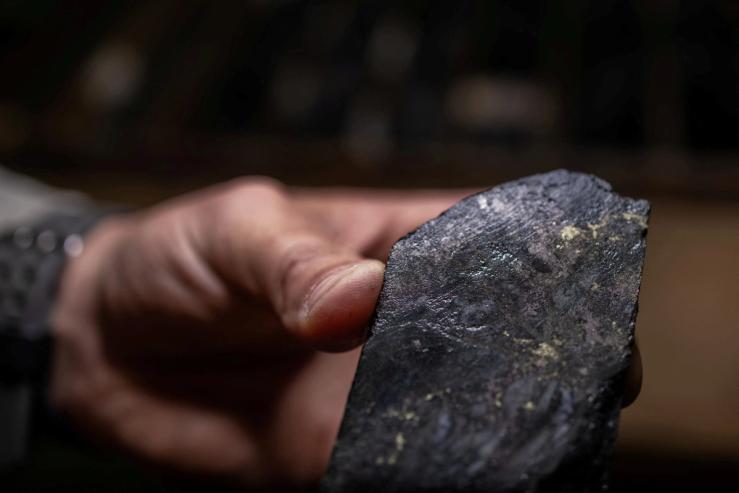The Scene
When Nigeria’s mining regulators cracked down on illegal diggers in 2023, it was an early sign the government had tired of being a raw material economy locked out of the most profitable parts of the minerals value chain. Even though hundreds of miners were arrested, many more were incentivized to form cooperatives as the authorities built digital registries to formalize local supply chains. By the end of 2024, mining revenues jumped more than 500% to $24 million, and this year two Chinese-backed lithium processing plants worth over $600 million are expected to open.
These policy shifts in Nigeria are part of a wider trend across the continent to create more value from African minerals at home beyond simply extraction. At the forefront of this shift are a new wave of African startups that are building trust in mineral and raw material supply chains, turning informal trade into something global buyers can verify.
These companies are offering audit trails and compliance platforms, local reagent plants, and data-backed logistics services. If they’re successful, they could play a crucial role in helping African countries capture more value from the minerals they export.
Lagos-based Sabi, cofounded by Anu Adedoyin Adasolum and Ademola Adesina, initially focused on digitizing the back-end of informal retail, and is now using the same software infrastructure to verify commodity exports. Through its TRACE platform (Technology Rails for African Commodity Exchange), the company, which has raised around $66 million from venture capital backers, helps producers generate verified digital “passports” for commodities like lithium, cocoa, and sesame.
In Botswana, Calisto Radithipa is helping cut cobalt refining delays by building modular chemical plants through Kemcore. And at Matta, Mudiaga Mowoe is quietly digitizing the procurement supply chain for manufacturers across West Africa.
None of these companies own any mines or farms, but all three want to be indispensable in the next phase of Africa’s commodity supply chain story.
Know More
Sabi says its platform is now active in Nigeria, DR Congo, Tanzania, and Zambia, processing more than 20,000 tons of minerals monthly, and is targeting a run rate that could account for 5% of US imports in select mineral categories by the end of 2025. “TRACE is free to use for the producers we onboard,” Adesina told Semafor. “We monetize trade flow, not platform access.
While Sabi is digitizing the chain of custody, Kemcore is focused on the mining reagents that fuel the supply chain. Originally launched in Hong Kong, the company moved operations to southern Africa and is now commissioning a 55,000-ton-per-year sodium metabisulfite (SMBS) plant in Botswana that cost around $15 million to build, after raising over $60 million in debt from regional banks. SMBS is used to separate metals from ore during processing, and delays in sourcing it from China were holding up production across the Copperbelt in Zambia and DR Congo.
“Shipping from Asia meant 10 to 12 weeks of exposure to stock-outs,” said Radithipa, Kemcore’s chief commercial officer. “Our Botswana plant alone will cut that to 7 to 10 days.” The company has signed MOUs for more “over-the-fence” reagent plants, modular units built adjacent to mining clients and operated under long-term contracts.
Matta, led by CEO Mudiaga Mowoe, is tackling a more fragmented but equally important challenge: industrial procurement by creating what it calls a “multi-layered operating system” for verified B2B trade. Through its logistics subsidiary, Flux by Matta, the company supports real-time movement of materials across Nigeria, South Africa, Ghana, and Senegal.
“Our aim is to make African materials procurement-ready and globally competitive,” Mowoe said. “That means building trust, not just in the products, but in the process.”
Olumuyiwa Olowogboyega’s view
What makes these companies interesting isn’t just that they’re African, but that they’re working on the internal pipes of African trade. Sabi’s pivot is one of the most radical we’ve seen. They’ve gone from helping distributors track inventory in informal markets to verifying tungsten exports for international buyers. But they’ve kept their core principle: stay asset-light, build infrastructure others can use.
Kemcore, in contrast, is deeply physical. The company solves pain points like long lead times, and lack of local supply. As more minerals get refined closer to home, their reagents will become indispensable.
Matta, which raised around $5 million in venture funding last year, is building a trust layer that lets global manufacturers treat African suppliers as equals, not just alternatives. And that’s what all three of these companies are chasing: trust, at scale.
Behind all of this is a market reshaped by geopolitics and climate policy. The US Inflation Reduction Act and EU regulations now require supply chain traceability. EV battery makers, for example, want ESG-compliant minerals. Africa has the inputs, but to fully capitalize, it needs the infrastructure to prove it.
Room for Disagreement
W Gyude Moore, a senior fellow at Washington’s Center for Global Development, believes that these startups are getting funded because investors can see a clear path to revenue. Yet he’s skeptical about the value proposition for African governments.
“There used to be a time when environmentalism was being pushed by both Europe and the Biden administration, but under the Trump administration, environmentalism is not perceived as important enough to order or change people’s behavior,” he told Semafor.
Notable
- Governments across Africa are tightening their control over critical minerals. DR Congo halted cobalt exports to boost prices, and Niger has nationalized a uranium mine, all part of a growing trend toward resource nationalism on the continent.
- Export restrictions on unprocessed minerals have the potential to make or break African development, argues The Wall Street Journal.


